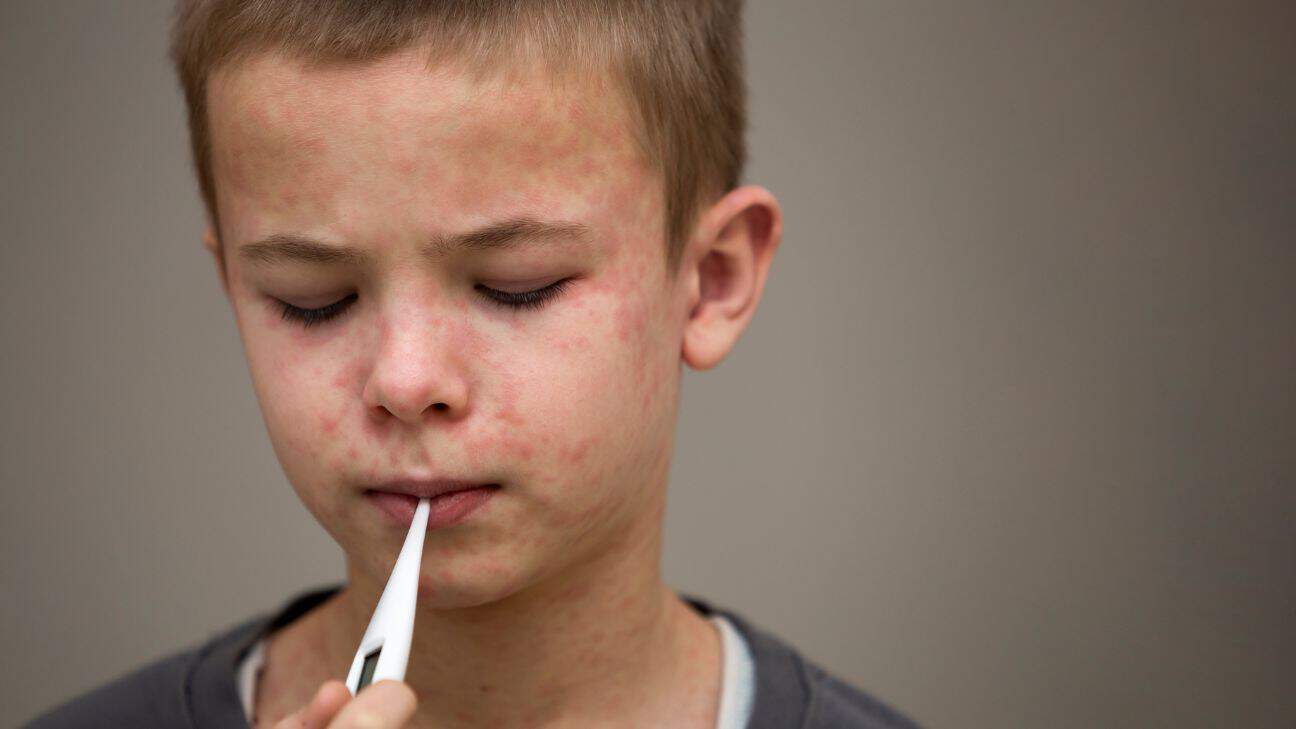
Choctaw Nation Public Health Advisory: Measles Outbreak Monitoring and Prevention
Published March 7, 2025The Choctaw Nation Public Health Department is actively monitoring the ongoing measles outbreak in West Texas and New Mexico to safeguard the health of our community. As of now, no confirmed cases of measles have been reported within the Choctaw Nation Reservation, and the risk remains low for vaccinated individuals.
Measles is a highly contagious respiratory virus that causes a rash accompanied with a fever. Although measles was declared eliminated in the United States, outbreaks can still occur in certain regions. Symptoms typically appear 7-14 days after exposure and may include:
- High fever
- Cough
- Runny nose (coryza)
- Red, watery eyes (conjunctivitis)
- Rash
Children under the age of 5 are at a higher risk of severe complications. Unvaccinated individuals are particularly vulnerable, with 9 out of 10 unprotected people contracting the virus after exposure. CNO Epidemiologist Mason Emert emphasizes that vaccination is the most effective defense against measles saying, “One dose of the MMR vaccine provides approximately 93% protection, while two doses offer about 97% protection.”
“Eligible patients can receive vaccinations through their local county health department or by contacting the Community Health Nurse at the nearest Choctaw Nation Healthcare Facility,” says CNO Director of Public Health Rikki LaRoche.
If you or your child develops symptoms of measles, contact your primary care provider or visit the nearest emergency room in case of severe symptoms. To verify vaccination status, reach out to your local county health department, primary care provider, or visit Immunization Record Info Request if vaccinated in Oklahoma.
For more detailed information about measles, please visit Healthy Children.
The Choctaw Nation Public Health Department remains committed to protecting the health and well-being of our community. We encourage everyone to stay informed and ensure vaccinations are up to date.
Measles FAQS
The first dose of MMR (Measles, Mumps, Rubella) vaccination is recommended between ages 12-15 months because it allows the body to develop a better immune response, compared to vaccinating earlier in life. If a woman has previously received an MMR vaccination, antibodies can cross the placenta and provide short-term immunity for the infant. However, this immunity is short term and is not an adequate substitute for standard vaccinations.
In certain situations, the CDC recommends earlier vaccinations for infants who may be traveling internationally, residing in a high-risk outbreak area, or other conditions. It is recommended to speak with your pediatrician or primary care provider to determine if an earlier vaccination is recommended.
It typically takes 2-3 weeks after completing the vaccination series to adequately produce protective antibodies and become fully protected.
- Per the CDC, if you have completed the two-dose MMR vaccination series, you are considered protected against measles. If you were born prior to 1957, you are considered immune as it is likely you may have had measles prior to elimination in the United States. If you are unsure of your vaccination status, check your vaccination record from the State Health Department of which the vaccinations were received.
- Routine immunity titer checking is not recommended for the general public. If you have been exposed to measles and are concerned about immunity, please contact your primary care provider or the local health department to determine if titer testing is recommended.
No. CDC considers people who received two doses of measles vaccine as children according to the U.S. vaccination schedule protected for life, and they do not ever need a booster dose. If you work in healthcare or other high-risk settings, or have a documentation of waning MMR immunity (i.e., titer testing), contact your primary care provider to determine if additional vaccination is recommended.
- Contact your primary care provider or the local health department immediately. Document any potential exposures you may have had recently, and remain isolated from the general public until you receive further guidance from your healthcare provider or the health department.
- If you are exhibiting symptoms of measles or have had an exposure to a confirmed case, do NOT enter a healthcare facility without first contacting the provider’s office. If you are a CNHSA patient and are concerned about measles-like symptoms or a recent exposure, please remain in your car and contact the providers office to check in and receive further guidance.
- Early symptoms of measles include fever, which can reach more than 104 degrees Fahrenheit (40 degrees Celsius); cough; runny nose; and red, watery eyes. Three to five days after symptoms start, a rash of red spots appears on the face and then spreads over the entire body.
- Symptoms typically start within 7-14 days after exposure; however, symptoms can appear as late as 21 days after the exposure.
Yes, measles can cause serious complications for all age groups, but especially for children younger than 5 years of age, pregnant women, and/or individuals with weakened immune systems.
Contact your primary care provider, child’s pediatrician, and/or the local health department for further guidance and evaluation.